
Peking University (PKU) is a public university in Haidian, Beijing, China. It is affiliated with and funded by the Ministry of Education of China. The university is part of Project 211, Project 985, the Double First-Class Construction, and the C9 League.
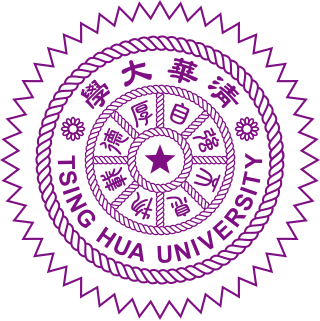
National Tsing Hua University (NTHU) is a public research university in Hsinchu, Taiwan.
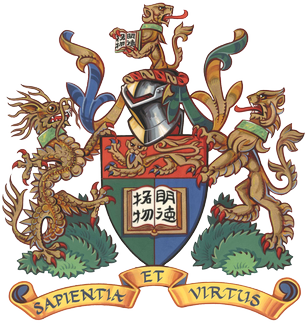
The University of Hong Kong (HKU) is a public research university in Pok Fu Lam, Hong Kong Island, Hong Kong.
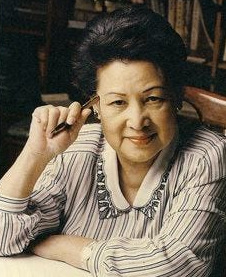
Lin Haiyin was a Taiwanese writer and editor from a family in Miaoli County, Taiwan. She was born in Osaka, Japan, and lived in New Taipei City's Panchiao district until the age of four before relocating to Beijing. Lin worked as a journalist and editor for the World Journal (世界日報) in Beijing before moving back to Taiwan with her family in 1948. In Taiwan, she served as an editor for the Mandarin Daily News (國語日報) and as the editor of the United Daily News (聯合報) supplement. She is best known for her 1960 book Memories of Peking: South Side Stories (城南舊事), a novelistic tribute to her childhood reminiscences of Beijing.

The Chinese Character Code for Information Interchange or CCCII is a character set developed by the Chinese Character Analysis Group in Taiwan. It was first published in 1980, and significantly expanded in 1982 and 1987.
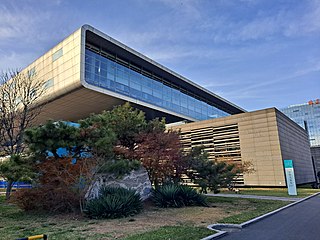
The National Library of China (NLC) is the national library of China, located in Beijing, and is one of the largest libraries in the world. It contains over 41 million items as of December 2020. It holds the largest collection of Chinese literature and historical documents in the world and covers an area of 280,000 square meters. The National Library is a public welfare institution funded by the Ministry of Culture and Tourism.
The Hamilton Library at the University of Hawaiʻi at Mānoa is the largest research library in the state of Hawaii. The Library serves as a key resource for the flagship Manoa campus as well as the other University of Hawaiʻi system campuses.

Wang Yi is a Chinese diplomat and politician who has been serving as Director of the Chinese Communist Party Central Committee Foreign Affairs Commission Office since January 2023, and as Minister of Foreign Affairs of China since July 2023.
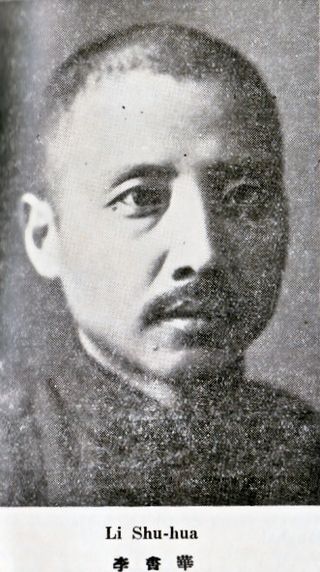
Li Shu-hua was a Chinese biophysicist and politician. He was an educator, and administrator at Beijing University and a Chinese diplomat. He was the brother of Li Shu-tien.

The Harvard–Yenching Library is the primary location for East Asia-related collections at Harvard Library. In addition to East Asian languages, it houses collections in European languages and Southeast Asian language (Vietnamese). Totaling more than 1.5 million volumes, the Harvard-Yenching Library has one of the largest collections in East Asian studies outside of Asia. The library has been located at 2 Divinity Avenue on the Cambridge campus of Harvard University since around 1957. The building was originally built in 1929 for Harvard's Institute of Geographical Exploration and currently houses part of the Harvard-Yenching Institute and the Department of East Asian Languages and Civilizations, in addition to the Harvard-Yenching Library.

The Peking University Shenzhen Graduate School is a public research university established as a satellite graduate school of Peking University in 2001 via a joint venture with the Shenzhen Municipal Government. It is situated inside the University Town of Shenzhen, along with the graduate schools of Tsinghua University and the Harbin Institute of Technology.
Ben Gu is a librarian, translator and library science researcher. He received his M.S. degree in Mathematics in Fudan University in 1987, and got his Ph.D. degree in Information Science in Renmin University of China in 2000. He translated many scholarly works in musicology, philosophy, history and library science, and compiled several books in library acquisitions and library cataloging. He was awarded by the State Council for his special contributions in library science.
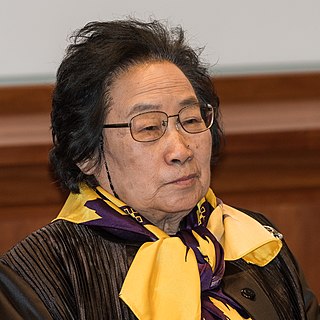
Tu Youyou is a Chinese malariologist and pharmaceutical chemist. She discovered artemisinin and dihydroartemisinin, used to treat malaria, a breakthrough in twentieth-century tropical medicine, saving millions of lives in South China, Southeast Asia, Africa, and South America.
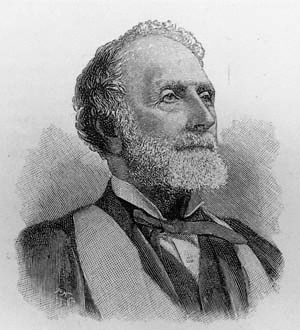
Sir Thomas Francis Wade, was a British diplomat and sinologist who produced an early Chinese textbook in English, in 1867, that was later amended, extended and converted into the Wade-Giles romanization system for Mandarin Chinese by Herbert Giles in 1892. He was the first professor of Chinese at Cambridge University.

Tsien Tsuen-hsuin, also known as T.H. Tsien, was a Chinese-American bibliographer, librarian, and sinologist who served as a professor of Chinese literature and library science at the University of Chicago, and was also curator of its East Asian Library from 1949 to 1978. He is known for studies of the history of the Chinese book, Chinese bibliography, paleography, and science and technology, especially the history of paper and printing in China, notably Paper and Printing, Volume 5 Pt 1 of British biochemist and sinologist Joseph Needham's Science and Civilisation in China. He is also known for risking his life to smuggle tens of thousands of rare books outside of Japanese-occupied China during World War II.
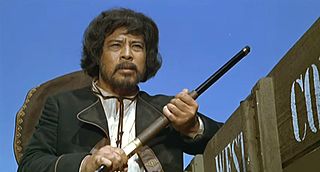
George Wang Jie was a Taiwanese actor and film producer. After a beginning his career in Mainland China during the Republican era, he was an important figure in the early development of Taiwanese and Hong Kong cinema, but came to the attention of international audiences for his appearances in a multitude of Italian films during the 1960s and '70s.

The International Mathematical Modeling Challenge (IMMC or sometimes IM2C) is an international mathematical modeling competition for high school students in team mathematical modeling co-sponsored by COMAP and the NeoUnion ESC Organization. Teams are selected on a country-by-country basis, with each country sending its top two teams to the competition. The IMMC was inspired by the HiMCM, a similar contest sponsored by COMAP but mainly attracting teams within the United States. The HiMCM in turn was established in the 1990s to create a high school counterpart to COMAP’s MCM. Contestants in the IMMC are given five days to research (the contest permits the use of any inanimate source) and write a mathematical paper detailing their mathematical model for a given situation. At the conclusion of the five-day period, papers are sent to an international expert committee composed of mathematics faculty from the world’s leading universities. Traditionally, 3-4 teams are awarded the top designation of Outstanding and invited to an awards ceremony, held in a different country each year.

David Mao is an American law librarian. Mao served as acting Librarian of Congress from September 30, 2015, until the confirmation of Carla Hayden in 2016.
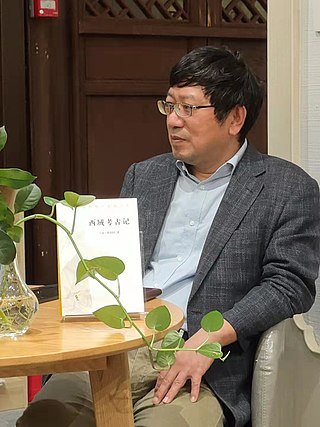
Rong Xinjiang is a Chinese historian who is a professor at Peking University, currently serving as chairperson of Academic Committee of Department of History and chairperson of Center for Research on Ancient Chinese History. He is also the Cheung Kong Scholars Distinguished Professor of the Ministry of Education, vice chairperson of the Tang Dynasty Institute of China and the Dunhuang and Turpan Institute of China.
Yuan Tung-li was a Chinese library administrator and bibliographer. He headed the National Library of China and was later consultant in Chinese literature at the United States Library of Congress.

















